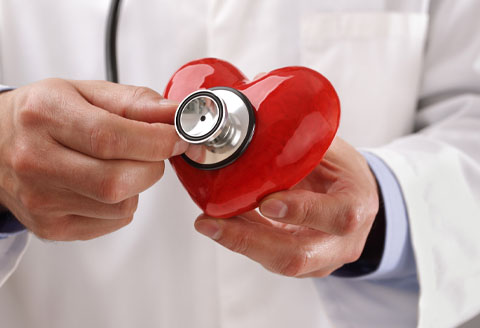GENERAL CARDIOLOGY
Chest Pain
Chest pain is a common symptom that can be experienced in many different ways and can stem from a variety of causes – some more serious than others. Careful history taking can help sort out whether the chest pain is potentially concerning or not. Ultimately, diagnostic testing can confirm whether there is a cardiac cause or not. It is advisable to always assume that chest pain could potentially be significant, and seek medical attention. Many heart attacks (or worse) could have been avoided by earlier medical attention.

CAD Management
CAD, or Coronary Artery Disease, is a condition where the arteries supplying blood to the heart muscle become narrowed or blocked due to a buildup of fatty substances, including cholesterol. This can reduce the flow of oxygen-rich blood to the heart, which can lead to chest pain (angina) and, in severe cases, a heart attack.
Management of CAD is all about reducing the risk of these serious complications, and it involves a combination of lifestyle changes, medication, and sometimes, medical procedures.

CAD Management
CAD, or Coronary Artery Disease, is a condition where the arteries supplying blood to the heart muscle become narrowed or blocked due to a buildup of fatty substances (like cholesterol) and inflammatory blood products. This blocks the flow of oxygen-rich blood to the heart, causing chest pain (angina) and heart damage (heart attack). We help patients with CAD manage their heart disease and prevent future complications.
Risk Factor Management
Heart disease tends to be driven by powerful risk factors, such as diabetes, hypertension, elevated cholesterol, smoking, obesity and sleep apnea. While a large part of the solution resides with life-style changes on the part of the patient, medication also plays a role. We help patients navigate this process by keeping a tab on risk factors and assessing for damage caused to the heart. We can help to address hypertension and high cholesterol with medication if necessary, and work collaboratively with your primary care provider.


CHF
CHF, or congestive heart failure, is a condition where your heart muscle can’t pump blood as well as it should. This is usually the result of damage to the heart, as occurs with heart attack, for example. However many other conditions can affect the ability of the heart to work normally. Common symptoms of heart failure are: shortness of breath, exercise intolerance, fatigue, swelling, chest pain, and bloating. Our practice has expertise at treating all aspects of heart failure, from medications prescribed in office, to procedures done in the hospital.
Stroke
A stroke is a serious health event that happens when the blood supply to part of your brain is interrupted or reduced, preventing brain tissue from getting the oxygen and nutrients it needs. This can cause brain cells to start dying within minutes.
Stroke can be caused by blockages in the carotid arteries that supply blood to the brain. However, less commonly known is that a major cause of stroke is a heart rhythm problem—atrial fibrillation (AFib). When the heart goes into AFib blood clots may form in the heart, which then can go (with the blood flow) up to the brain, causing stroke. Therefore, a part of the work-up for stroke is to evaluate patients for AFib. This is a common reason for patients being referred to our practice.


Syncope
Syncope is the medical term for sudden fainting or passing out. The most common root cause for the faint is lack of blood flow to the brain. However, the question that needs to be answered is WHY the blood flow to the brain was compromised, and could it happen again? This is where an electrophysiologist may enter the picture.
